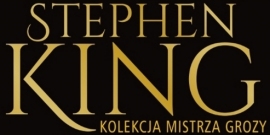John D and me: Stephen King
W serii cotygodniowych artykułów dla Herald's Tribune zatytułowanej "John D and Me", Stephen King opowiada o początkach swojej fascynacji twórczością Johna D. MacDonalda.


I was 12 years old when I first met MacDonald, a recent graduate of those mystery novels featuring Nancy Drew and the Hardy Boys. My first JDM novel, "Murder in the Wind," was like a splash of cold water in a sleeper's face. In that book and the ones that followed, I recognized the true face of evil: perhaps handsome, even magnetic, and capable of a thin calculation, but essentially vapid underneathââŹ"a roaring void capable only of breaking, never of making. It was in a John D. MacDonald novel that I first encountered the concept of the sociopath. In books like "The End of the Night" and "The Last One Left," I met fictional monsters like Ted Bundy and John Wayne Gacy long before the real monsters became headlines. MacDonald grasped those people by the power of his prodigious imagination, and he wrote about them with often horrifying clarity.
Also, he was one damned fine storyteller. His novels are brilliantly paced. He wrote for ordinary guys and gals, back-pocket paperbacks aimed at those who read for pleasure, but he never wrote down to them. That was (and is) an important lesson for every developing writer.
In 1977, when I was preparing my first collection of short stories for publication, I wrote a timid letter to Mr. MacDonald, asking if he would provide an introduction to my book, which was called "Night Shift." He responded that he would if he liked the stories. I sent them to him, and he wrote the introââŹ"a very generous one, too. In it, he said something I never forgot. "I know a dozen demons hiding in the bushes where his path leads," he wrote, "and even if I had a way to warn him, it would do no good. He whips them or they whip him." I thought of that often as I wrestled with my own particular demons, and those words gave me comfort. As did MacDonald's books themselves, and still do. Because I make it my business to read a pair every year, one Travis McGee and one stand-alone. They refresh me, and they still teach me.
I owe him a debt of gratitude for that fine introduction, and in a strange way I also owe him for my beautiful granddaughter, who was born long after JDM passed away. You see, one day on the campus of Columbia University, my younger son happened to notice a pretty girl reading "A Purple Place for Dying." Owen asked her how she liked it. They had an animated discussion about MacDonald, and you can guess the rest. Suffice it to say that they gave away copies of that particular John D. MacDonald novel at their wedding. I love both my daughter-in-law and my granddaughter like mad, and I'm very glad the girl who became my son's wife was a Travis McGee fan.
Also, he was one damned fine storyteller. His novels are brilliantly paced. He wrote for ordinary guys and gals, back-pocket paperbacks aimed at those who read for pleasure, but he never wrote down to them. That was (and is) an important lesson for every developing writer.
In 1977, when I was preparing my first collection of short stories for publication, I wrote a timid letter to Mr. MacDonald, asking if he would provide an introduction to my book, which was called "Night Shift." He responded that he would if he liked the stories. I sent them to him, and he wrote the introââŹ"a very generous one, too. In it, he said something I never forgot. "I know a dozen demons hiding in the bushes where his path leads," he wrote, "and even if I had a way to warn him, it would do no good. He whips them or they whip him." I thought of that often as I wrestled with my own particular demons, and those words gave me comfort. As did MacDonald's books themselves, and still do. Because I make it my business to read a pair every year, one Travis McGee and one stand-alone. They refresh me, and they still teach me.
I owe him a debt of gratitude for that fine introduction, and in a strange way I also owe him for my beautiful granddaughter, who was born long after JDM passed away. You see, one day on the campus of Columbia University, my younger son happened to notice a pretty girl reading "A Purple Place for Dying." Owen asked her how she liked it. They had an animated discussion about MacDonald, and you can guess the rest. Suffice it to say that they gave away copies of that particular John D. MacDonald novel at their wedding. I love both my daughter-in-law and my granddaughter like mad, and I'm very glad the girl who became my son's wife was a Travis McGee fan.
opublikowano: 2016-01-08 23:00:00
Tagi:
Stephen King, W Prasie
ZOBACZ PODOBNE AKTUALNOŚCI
- Spis treści "Stephen King. Instrukcja obsługi"
- Okładka i szczegóły książki "Stephen King. Instrukcja obsługi"
- "Stephen King. Instrukcja obsługi" - druga polska publikacja o Kingu
- Historia Horroru według Eli Rotha
- Wywiad ze Stephenem Kingiem w Newsweeku
- "Reading Stephen King" - fani o tym co kochają u Stephena Kinga
- Wszystkie wywiady z 16 Narodowego Festiwalu Książki
- Stephen King na Narodowym Festiwalu Książki
- Stephen King 5 na liście najlepiej zarabiających pisarzy 2016 wg. Forbes
- Fragment eseju "Guns" w International Business Times









